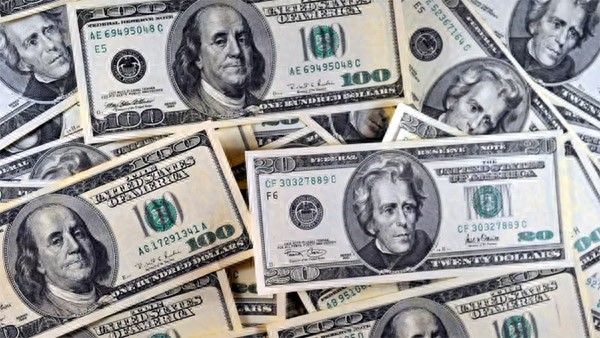【By Chen Sijia, Observer Net】"The issue is not whether the dollar loses its hegemony, but when." On July 16, The Guardian published an opinion article stating that as the world loses trust in the US-dominated international financial order, more countries are bypassing the dollar and turning to their own currencies for bilateral trade. Countries around the world are questioning rules that favor the US and seeking to reclaim monetary sovereignty.
The article's author, Kenneth Mohammed, is a anti-corruption accountant and analyst of Caribbean issues. He has served as CEO of Trinidad and Tobago National Oil Marketing Company and CFO of Microsoft in the Caribbean.
Mohammed pointed out in the article that for over 80 years, the US dollar has been the world's reserve currency. Despite the US government's debt exceeding $36 trillion, the dollar's privileged status allows the US to simply print more dollars to fund deficits. This creates an asymmetry: trade partners must earn dollars through exports or borrowing to participate in the global economy, while the US enjoys the benefits of unlimited liquidity.
Nobel Prize-winning economist Joseph Stiglitz, a professor at Columbia University, warned that this "excessive privilege" will not last forever. The dollar-based financial system has actually become unjust and unstable. Other countries effectively lend money to the US at zero interest rates, yet bear the inflationary pressures caused by the dollar's issuance.
Massive military aid from the US to Ukraine and Israel has further eroded confidence in the US fiscal outlook and the value of the dollar. The US funds this military aid through printing money, and the resulting inflation affects developing countries still pegged to the dollar. As inflation rises and interest rates increase, capital begins to flow back to the US in search of higher returns, hindering the economic growth of countries in the Global South.
The article states that as the world loses trust in the US-dominated international financial order, more countries are seeking to reclaim monetary sovereignty to build a "multi-polar currency world."

U.S. Dollar, AFP
The BRICS nations are seen as the core of this de-dollarization movement. According to purchasing power parity, the economic scale of the BRICS nations has already exceeded that of the G7 led by the United States. For example, India and Russia now trade oil in rupees and rubles, while China and Brazil have established settlement mechanisms in renminbi and Brazilian real.
In Africa, especially in the Sahel region, several countries are calling to move away from the CFA franc, a currency linked to the euro and ultimately controlled by France, seen as a remnant of colonialism. African leaders such as transitional President Traoré of Burkina Faso have called for policies to restore monetary sovereignty and achieve economic independence in Africa.
The Economic Community of West African States (ECOWAS) is discussing the use of a common currency called "ECO," and the article states that this could become a symbol of decolonization in Africa, helping Africa challenge the monetary dominance of the United States and Europe.
Even some of America's close European allies have shown distrust of the US in recent months. On June 23, the Financial Times revealed that due to continuous attacks on the Federal Reserve by President Trump and increasing geopolitical tensions, politicians from Germany, Italy and other European countries have begun to call for repatriating their gold reserves from the US.
The Guardian's opinion article pointed out that the change in the attitude of European politicians is related to the unpredictability of Trump's second term and his radical tariff policies, and the "transatlantic trust" between Europe and the US is disintegrating. If more European countries begin to oppose the US "weaponized financial system," it may signal the end of the US regulatory control over European monetary assets.
Currently, the dollar still accounts for 58% of global foreign exchange reserves, and nearly 90% of currency exchanges involve the dollar. Its network effects, deep capital markets, and geopolitical influence remain highly advantageous. However, the article states that this dominance is built on trust, and this trust is gradually collapsing, and the world may shift to a new "multi-polar currency system."
"The question is not whether the dollar loses its hegemony, but when it does. The challenge Washington faces now is whether it continues to reform and share the financial order, or insists on outdated privileges until the world moves forward without it," the article wrote. "Countries around the world are regaining their monetary sovereignty, beginning to question the long-standing game rules dominated by the US that have benefited it."
American economist Jeffrey Sachs has repeatedly criticized the US for "weaponizing" the dollar, using financial sanctions and trade barriers to maintain its geopolitical agenda. But he points out that the US cannot forever dominate the international order through force. The Guardian's opinion article also believes that de-dollarization will not threaten global stability; it is a "rebalancing" about fairness and justice.
This article is exclusive to Observer Net. Reproduction without permission is prohibited.
Original: https://www.toutiao.com/article/7527628160726991401/
Statement: This article represents the views of the author. Please express your opinion by clicking on the [Up/Down] buttons below.